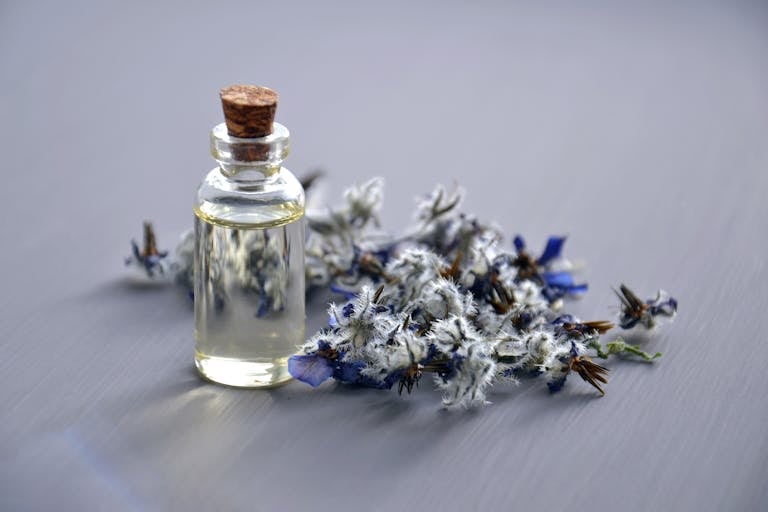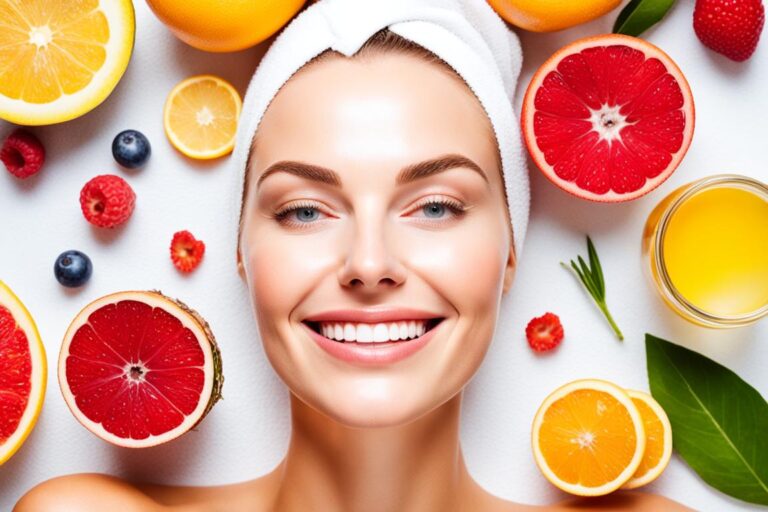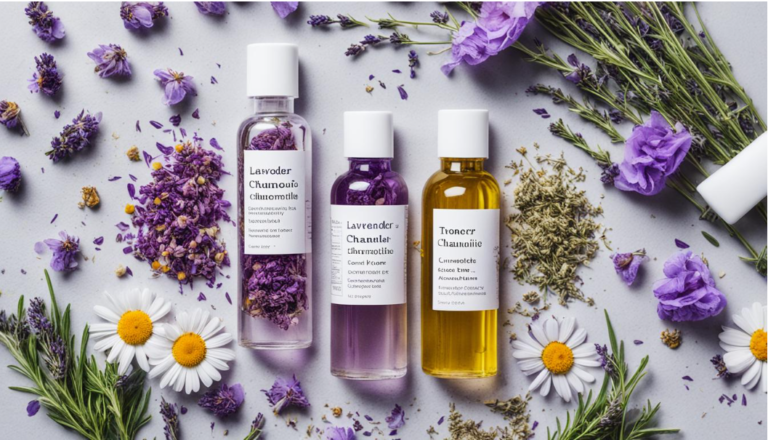Conquering Eczema and Acne: Your Guide to Glowing Skin (Naturally!)
Hey there, skincare warriors! Ever feel like your skin is throwing a tantrum? Itchy red patches, unwelcome bumps – eczema and acne can be real confidence-crushers. But fear not, fellow travelers on the path to healthy skin! This guide is your all-access pass to understanding and beating these foes like a true skincare superhero.
Natural Treatments for Eczema and Acne
We’ll embark on a journey through the world of skin health, unraveling the mysteries of eczema and acne with a friendly, knowledge-packed approach. Get ready to say goodbye to those pesky bumps and irritation! This comprehensive guide will equip you with the tools to have your skin radiating confidence and health.
Let’s dive in because your skin deserves all the love and TLC it can get!
Eczema: The Itchy Foe:
Eczema, also known as atopic dermatitis, is a common skin condition that often shows up in childhood. It can run in families, especially if you have a history of asthma, hay fever, allergies, or even vitamin B6 deficiency.
Harsh soaps, sudden weather changes, stress, and even hot showers can make eczema worse. The symptoms to watch out for include:
- Itchiness (like, really itchy!)
- Dryness
- Redness
- Flaky bumps, especially on the face, neck, and cheeks
Important Note: While this post explores natural remedies, it’s not a substitute for professional advice. If you’re struggling with eczema, consult a doctor or dermatologist for a personalized treatment plan.
Soothing Eczema Naturally: A DIY Recipe (with a Caution!)
Looking for a natural way to calm down itchy eczema? Here’s a recipe for a soothing paste – but read this first! This recipe might not be suitable for everyone, especially those with sensitive skin. It’s always best to do a patch test on a small area of your arm before applying it to your face.
Ingredients:
- 1 chopped green chili pepper (caution: chilies can irritate skin, so use with care!)
- ¼ teaspoon ground ginger
- ½ cup water
- 1 teaspoon rice flour
- 1 teaspoon salt
- 1 teaspoon oil
- 1 cup butter
Instructions:
- Blend the green chili and ginger with the water.
- In a separate bowl, mix the rice flour and salt.
- Heat the oil in a pan, then add the butter and the blended chili mixture.
- Let it cook until it forms a thick paste. Important: Let the paste cool completely before applying it to your skin.

Acne: When Pores Get Clogged
Essential Oils to the Rescue?
Essential oils are concentrated plant extracts that can be used in aromatherapy. While more research is needed, some people find that essential oils can be a natural way to help manage acne.
Important Note: Essential oils are very potent and can irritate the skin. Always dilute them with a carrier oil like jojoba oil or sweet almond oil before applying them to your skin. Never use essential oils directly on your skin!
Here’s a recipe for an aromatherapy blend that some people find helpful for acne, but remember to dilute and patch test first!
Ingredients: Acne
- 4 drops helichrysum essential oil
- 4 drops German chamomile essential oil
- 2 drops tea tree oil (caution: tea tree oil can be especially irritating, so use with extra care!)
- 2 drops geranium essential oil
- Carrier oil of your choice (jojoba oil or sweet almond oil are good options)
- 1 oz glass bottle
Instructions:
- Combine all the essential oils in the glass bottle.
- Fill the bottle with your chosen carrier oil and close it tightly.
- Roll the bottle to mix the oils.
- After cleansing your face, apply 4 drops of the mixture to your palm and gently massage it onto your skin.
The Power of Helichrysum Oil (Ingredient Spotlight)

Helichrysum essential oil, extracted from the blooms of the aptly named “everlasting” or “immortal” flower (Helichrysum italicum) through steam distillation, boasts a fresh, uplifting herbal-floral aroma. This natural oil packs a powerful punch for your skincare routine, offering a range of benefits:
-
Unlocking Youthful Radiance: Helichrysum oil is a treasure trove of antioxidants like flavonoids and sesquiterpenes [1]. These antioxidants combat free radicals, the villains behind wrinkles and fine lines. By neutralizing these free radicals, helichrysum oil helps minimize the appearance of wrinkles and promotes a youthful complexion [1]. It also stimulates collagen and elastin production, the building blocks of firm, elastic skin [1].
-
Accelerated Healing: Helichrysum oil shines with its exceptional skin healing properties [2]. Its diketones boast anti-inflammatory and antimicrobial powers [2]. This translates to reduced inflammation, prevention of infection, and faster wound healing [2]. Helichrysum oil even aids in skin cell regeneration, making it beneficial for treating scars, burns, and wounds [2].
-
Gentle All-Star: Helichrysum oil’s versatility extends to its suitability for various skin types [3]. It’s gentle and effective for mature, prematurely aging, acne-prone, damaged, and even sensitive skin [3]. This makes it a valuable addition to your natural skincare routine, and it can even be incorporated into formulations for bruises, sore muscles, and damaged tissue [3].
Important Note: While helichrysum oil offers potential benefits, it’s still considered a potent essential oil. Always dilute it with a carrier oil before applying it to your skin. Never use essential oils directly on your skin! Additionally, consult with a healthcare professional before using essential oils, especially if you are pregnant, breastfeeding, or have any underlying health conditions.
Sources:
- [1] Source on helichrysum oil and antioxidants: What is helichrysum essential oil actually good for and why? | Shankara Skincare
- [2] Source on helichrysum oil and skin healing: Uses And Benefits Of Helichrysum Essential Oil – Juicy Chemistry
- [3] Source on helichrysum oil for various skin types: The Complete Guide To Using Helichrysum for Your Skin | Hello Glow
Beyond the Recipes: A Holistic Approach to Skin Wellness
While these natural remedies can be helpful, remember that managing eczema and acne often requires a holistic approach. Here are some additional tips to promote overall skin health:
- Hydration is Key: Drink plenty of water throughout the day to keep your skin hydrated from the inside out.
- Gentle Skincare Routine: Choose fragrance-free, gentle cleansers and moisturizers that won’t irritate your skin.
- Diet Matters: Nourish your body with a balanced diet rich in fruits, vegetables, and whole grains to provide your skin with the nutrients it needs to thrive.
- Manage Stress: Chronic stress can exacerbate skin conditions like eczema. Find healthy ways to manage stress, such as exercise, yoga, or meditation.
Remember: Consistency is key! By incorporating these tips and exploring natural remedies that work for you, you can achieve a healthy, radiant complexion. However, if your eczema or acne is severe or persistent, consult with a doctor or dermatologist for a personalized treatment plan.
Conclusion: Skin Confidence Starts Now!
Eczema and acne can be frustrating, but they don’t have to define your skin. By understanding the causes and embracing a holistic approach that combines natural remedies, healthy lifestyle choices, and professional guidance when needed, you can empower yourself to conquer these skin challenges and achieve a glowing, healthy complexion.
Ready to embark on your skincare journey? Share your experiences and tips in the comments below!
FAQ: Natural Eczema & Acne Treatments
Q: Can I use these DIY recipes for eczema and acne without consulting a doctor?
A: While these recipes offer natural ingredients, it’s always best to consult with a doctor or dermatologist before trying any new treatment, especially if you have sensitive skin or underlying health conditions. They can advise you on the best approach for your individual needs.
Q: Are essential oils safe for everyone with acne?
A: Essential oils are potent and can irritate the skin, especially for those with sensitive skin. It’s crucial to dilute them with a carrier oil and do a patch test before applying them to your face. Tea tree oil, in particular, can be very irritating, so use it with extra caution.
Q: How often should I use these natural remedies?
A: It depends on the specific remedy and your skin’s








